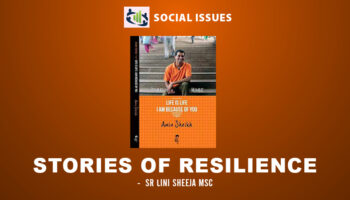A Physician’s Perspective on Treating Rare Diseases in Children
Let me start with a true story.
A hopeful young couple loved each other and married outside their caste and language boundaries. They were a middle-class, educated couple who were confident that they could make a life together with opportunities in a big city.
A baby was born to them, and slowly the husband and wife were able to convince their respective families to lay their differences aside and come together, as they themselves had demonstrated it was possible. All was well till the elders in the family noted that at six months age the baby was a bit slow and not doing the things that one would expect for its age.
At this point I was consulted about this developmental delay in my capacity as a paediatric neurologist — someone who cares for babies and children affected with diseases of the brain, spinal cord, nerves and muscles. A delay in development is a sure warning sign that there is always something causing the deviation in normal development and milestones.
A Rare Disease—and Fatal
Often the primary suspicion would be to look for any problems within the brain, and that is indeed what we proceeded to do in this instance when we did an MRI scan of the brain. We detected abnormalities that further led us to an unexpected diagnosis of the rare Menkes disease, which is universally fatal in the first few years of life as the rare existing treatments fail to make meaningful changes.
Day in and day out we deal with children and families affected with rare diseases of the brain and nervous system. This is a glimpse into the lives of families thus affected as well as of those of us who treat them.
The first thing that would strike our mind normally would be, “How can babies get brain problems?” Usually, one would not be wrong to think thus, because in the normal course of events diseases affecting the brain — such as stroke — are often lifestyles disease, caused by the choices one makes, such as what one eats, how much one exercises or even one’s habits, such as smoking.
But these little ones have not seen enough of life to have these kinds of issues. So how can a new-born baby have a stroke? Yet this is what we see and treat every day, and these are oftentimes caused by rare genetic diseases that might make the blood stickier than usual, causing the clot to form easily and thus throw a stroke by blocking a blood vessel inside the brain. We mostly see infants and little ones suffering from rare diseases, eighty per cent of which are caused by genetics. Contrary to what is often generally believed, one does not need to have a family history to suffer from these rare genetic diseases.
Dr Ann Agnes Mathew
To read the entire article, click Subscribe





